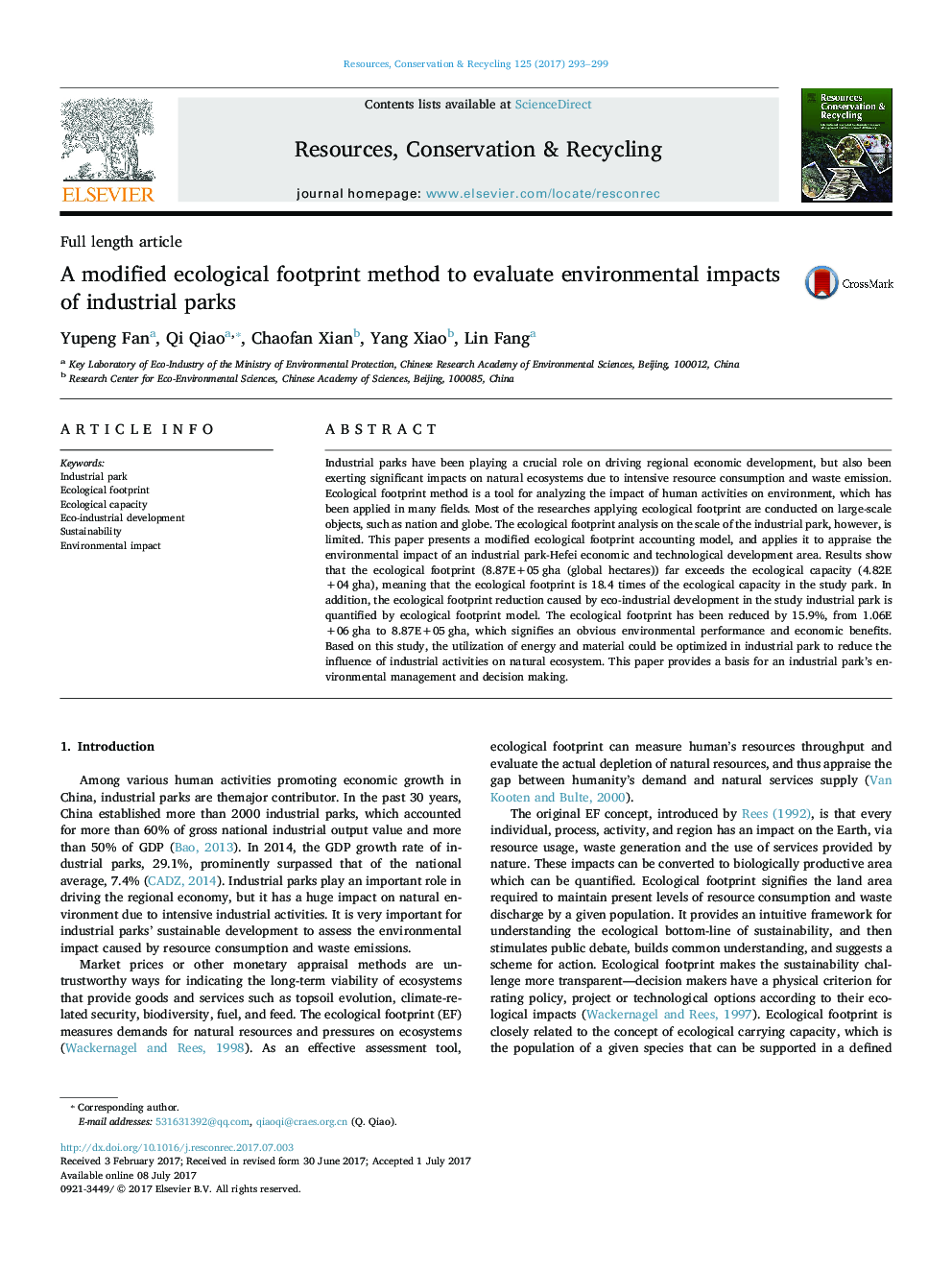| Article ID | Journal | Published Year | Pages | File Type |
|---|---|---|---|---|
| 5118668 | Resources, Conservation and Recycling | 2017 | 7 Pages |
â¢A modified EF method was developed to evaluation the industrial park.â¢The account of non-renewable resources, water, pollutants were considered.â¢The EF is 18 times of the carrying capacity at HETDA.â¢EF of HETDA is reduced by 15.9% due to eco-industrial transformation.â¢EC can be improved by raising yields on already existing productive areas.
Industrial parks have been playing a crucial role on driving regional economic development, but also been exerting significant impacts on natural ecosystems due to intensive resource consumption and waste emission. Ecological footprint method is a tool for analyzing the impact of human activities on environment, which has been applied in many fields. Most of the researches applying ecological footprint are conducted on large-scale objects, such as nation and globe. The ecological footprint analysis on the scale of the industrial park, however, is limited. This paper presents a modified ecological footprint accounting model, and applies it to appraise the environmental impact of an industrial park-Hefei economic and technological development area. Results show that the ecological footprint (8.87E+05Â gha (global hectares)) far exceeds the ecological capacity (4.82E+04Â gha), meaning that the ecological footprint is 18.4 times of the ecological capacity in the study park. In addition, the ecological footprint reduction caused by eco-industrial development in the study industrial park is quantified by ecological footprint model. The ecological footprint has been reduced by 15.9%, from 1.06E+06Â gha to 8.87E+05Â gha, which signifies an obvious environmental performance and economic benefits. Based on this study, the utilization of energy and material could be optimized in industrial park to reduce the influence of industrial activities on natural ecosystem. This paper provides a basis for an industrial park's environmental management and decision making.
